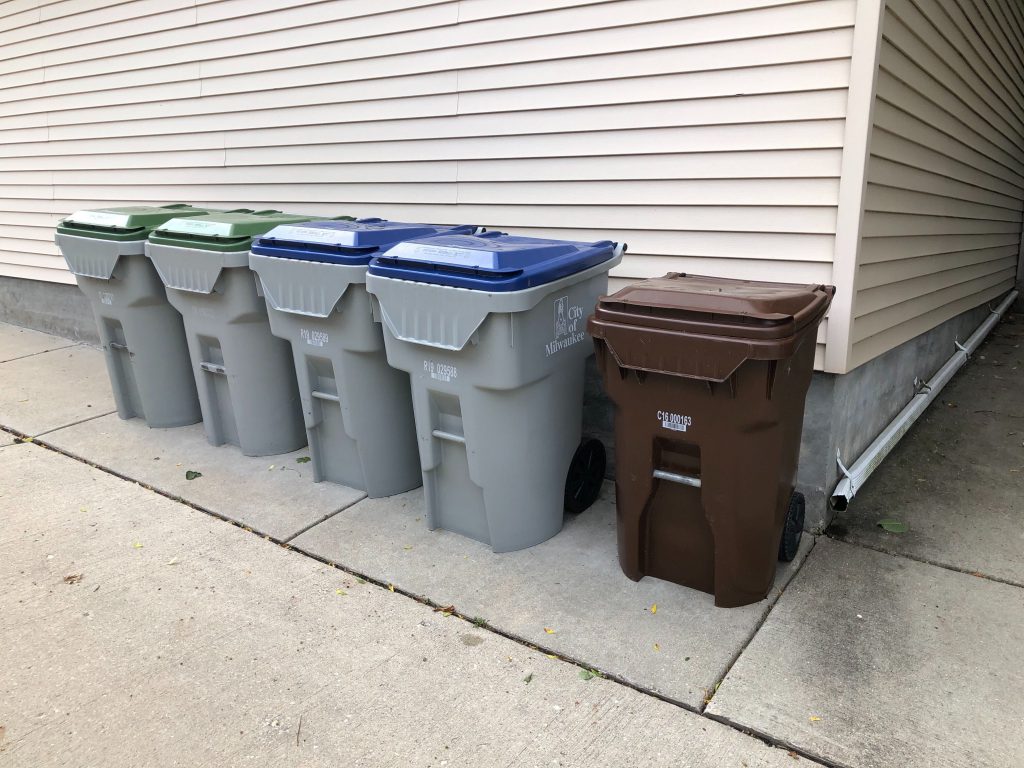Milwaukee Aims To Cut Food Waste By 130 Tons in 2 Years
City program will also help feed those experiencing food insecurity.
A $400,000 federal grant will fund the launch of a new city program aimed at reducing food waste and food insecurity.
Known as Food Excess, Equitable Distribution or FEED MKE, the pilot program will provide grants in two areas: to support the development of food recovery capacity building and to support the purchase of on-site composting supplies or to institute subscription-based composting services at community locations.
Reducing food waste was one of “10 Big Ideas” identified in the city’s 2023 Milwaukee Climate and Equity Plan.
“The FEED MKE pilot project offers our city the opportunity to strengthen our economy by reducing waste, addressing hunger, and building programs that inspire hope,” said Mayor Cavalier Johnson in a statement announcing the award. “This funding will support significant advancements toward the Milwaukee Climate and Equity Plan’s big ideas, specifically waste reduction and sustainable consumption. The benefits of this work are multiple, including feeding hungry residents, keeping methane-producing food waste out of landfills, composting more organic matter to enrich our soil, and creating employment opportunities for residents living in food-insecure communities.”
On Tuesday, the city announced it will offer $127,500 in grants through FEED MKE. Grant awards of $5,000 to $30,000 are available to up to eight organizations to address food recovery capacity building. Grant awards of $5,000 to $20,000 will be available for up to five organizations for composting supplies.
A series of workshops are scheduled for October for prospective applicants to learn more. The application deadline is Nov. 22. More information is available on the program webpage.
According to the city’s grant summary, 15% of material going to landfills locally is edible food and Milwaukee County meanwhile saw a 14% increase in FoodShare recipients following the onset of the COVID-19 pandemic. One in seven Wisconsin families are said to experience food insecurity.
The grant summary states that the Mayor’s Office will also launch a “food saver challenge” to incentivize private businesses to reduce their food waste.
And the Department of Public Works will establish eight community compost stations. Those stations, within two years, are expected to divert 100 tons of waste. The community partners funded by the grants are expected to divert 30 tons in the same time period.
Its the third competitive grant the Environmental Collaboration Office has landed in recent weeks.
The latest grant, a two-year award, comes from the U.S. Department of Agriculture‘s Composting and Food Waste Reduction program and is funded by the Inflation Reduction Act.
Earlier grants addressed other “big ideas” in the climate plan – an electric vehicle (EV) charging network, backed with $15 million, and the construction of net-zero energy homes, backed with $3.4 million.
Legislation Link - Urban Milwaukee members see direct links to legislation mentioned in this article. Join today
If you think stories like this are important, become a member of Urban Milwaukee and help support real, independent journalism. Plus you get some cool added benefits.
City Hall
-
Council Blocked In Fight To Oversee Top City Officials
 Dec 16th, 2025 by Jeramey Jannene
Dec 16th, 2025 by Jeramey Jannene
-
Latest Effort to Adopt New Milwaukee Flag Going Nowhere
 Dec 3rd, 2025 by Jeramey Jannene
Dec 3rd, 2025 by Jeramey Jannene
-
After Deadly May Fire, Milwaukee Adds New Safety Requirements
 Dec 2nd, 2025 by Jeramey Jannene
Dec 2nd, 2025 by Jeramey Jannene





















